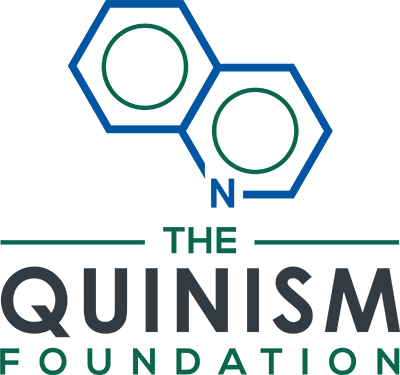The Quinism Foundation Warns of Dangers from Use of Antimalarial Quinolines Against COVID‑19
Use of Chloroquine, Hydroxychloroquine, Mefloquine, Quinine, and Related Quinoline Drugs Risks Sudden and Lasting Neuropsychiatric Effects from Idiosyncratic Neurotoxicity
WHITE RIVER JUNCTION, VT. (PRWEB) MARCH 20, 2020
The Quinism Foundation has warned of a risk of sudden and lasting neuropsychiatric effects from the use of antimalarial quinolines against COVID‑19, the disease caused by the novel coronavirus, and has urged policy makers, physicians, and members of the public to be alert to such effects.
“The same endosomotropic properties that likely underlie the effectiveness of quinoline antimalarial drugs such as chloroquine and hydroxychloroquine against the virus may also underlie their dangers, ” said Dr. Remington Nevin, MD, MPH, DrPH, a Johns-Hopkins trained psychiatric epidemiologist and drug safety expert and former U.S. Army public health physician, who now serves as Executive Director of The Quinism Foundation. “These are not safe drugs.”
“In susceptible individuals, these drugs act as idiosyncratic neurotoxicants, potentially causing irreversible brain and brainstem dysfunction, even when used at relatively low doses,” said Dr. Nevin. “This drug-induced dysfunction causes a disease of the brain and brainstem called quinoline encephalopathy, or quinism, which can be marked acutely by psychosis, confusion, and risk of suicide, and by lasting psychiatric and neurological symptoms.”
“Symptoms of chronic quinoline encephalopathy include tinnitus, dizziness, vertigo, paresthesias, visual disturbances, nightmares, insomnia, anxiety, agoraphobia, paranoia, cognitive dysfunction, depression, personality change, and suicidal thoughts, among others, ” said Dr. Nevin. “Particularly among military veterans, in whom these drugs have been widely used for decades as prophylactic antimalarials, these symptoms can mimic and be mistaken for those of post-traumatic stress disorder and traumatic brain injury.”
Dr. Nevin noted a recent report by an ad-hoc committee of the National Academies of Sciences, Engineering, and Medicine identified a critical need for additional research on the long-term effects of antimalarial quinolines. Dr. Nevin also emphasized that the Quinism Foundation has recently called on Congress to fund research into chronic quinoline encephalopathy [1].
Dr. Nevin noted that antimalarial drugs of the quinoline class are amphiphilic weak bases, which lead to their accumulation in acidic cellular endosomes. Dr. Nevin noted that during World War II-era studies, when many antimalarial drugs of the quinoline class were first synthesized, clinical researchers found that many caused a syndrome marked by psychosis, confusion, dizziness, and other psychiatric, cognitive, and neurologic adverse effects [2]. Dr. Nevin noted that other researchers studying the drugs’ toxicity in animals noted they caused widespread and irreversible neurotoxic injury to neurons throughout the brainstem and limbic system [3].
“Although antimalarial quinolines have been commonly prescribed and used by millions of people for prevention of malaria, and more recently, in the treatment of autoimmune diseases, a substantial minority will need to discontinue the drugs early during use owing to the development of prodromal neuropsychiatric symptoms,” said Dr. Nevin.
Dr. Nevin noted that mefloquine (previously marketed as Lariam) now contains a boxed warning, cautioning of the need to immediately discontinue the drug at the onset of even seemingly mild symptoms such as abnormal dreams, nightmares, insomnia, anxiety, depression, restlessness, or confusion, as these may be considered “prodromal to a more serious event”. “What could be more serious than anxiety, depression, restlessness, or confusion?” asked Dr. Nevin. “The answer is the risk of permanent neuropsychiatric disability and suicide noted by the drug’s manufacturer and by drug regulators.”
Dr. Nevin said that he was troubled by rising interest among members of the public in obtaining chloroquine, hydroxychloroquine, and mefloquine without a doctor’s prescription or public health oversight. “Lax regulation and unethical business practices have resulted in these drugs being widely available for purchase online without proper oversight,” said Dr. Nevin.
Dr. Nevin noted his concern that members of the public may even attempt to obtain therapeutic quantities of quinine through questionable channels. “Tonic water, whose bitter taste is produced by the addition of quinine or related naturally-occurring quinolines, is limited by U.S. Food and Drug Administration regulations to 83 mg per liter of quinine and related cinchona alkaloids,” said Dr. Nevin. “However, drinking several bottles of tonic water will result in consuming pharmaceutical quantities, and therefore potentially harmful, amounts of these drugs”, said Dr. Nevin. “Tonic water is a prescription medication masquerading as a cocktail mixer.”
Dr. Nevin emphasized the importance of recognizing and properly reporting adverse effects from these medications to the U.S. Food and Drug Administration. “While it may be tempting to attribute anxiety, depression, paranoia, or other mental health symptoms to the psychological effects of the COVID‑19 pandemic, ” said Dr. Nevin, “these symptoms may be an early warning sign of idiosyncratic neurotoxicity, and must be taken seriously.”
Dr. Nevin noted that adverse effects from chloroquine, hydroxychloroquine, mefloquine, quinine, and even tonic water may be reported to the U.S. Food and Drug Administration’s MedWatch program, at https://www.fda.gov/safety/medwatch-fda-safety-information-and-adverse-event-reporting-program.
About The Quinism Foundation
The Quinism Foundation, founded in January 2018, in White River Junction, Vermont, promotes and supports education and research on quinism, the family of medical disorders caused by exposure to quinoline drugs, including mefloquine, tafenoquine, and chloroquine.
Dr. Nevin is a board-certified occupational medicine and preventive medicine physician and former U.S. Army medical officer and epidemiologist. He is author of more than 30 scientific publications on malaria and the quinoline antimalarials, including “Neuropsychiatric Quinism: Chronic Encephalopathy Caused by Poisoning by Mefloquine and Related Quinoline Drugs,” published in the Springer Nature book, “Veteran Psychiatry in the US.”
(https://link.springer.com/chapter/10.1007/978-3-030-05384-0_20).
References
1. The Quinism Foundation. The Quinism Foundation and Veterans for Common Sense Call on Congress to Fund Research into Chronic Quinoline Encephalopathy. March 9, 2020. Available at: https://quinism.org/press-releases/congress-research-chronic-quinoline-encephalopathy/.
2. Nevin RL, Croft AM. Psychiatric effects of malaria and anti-malarial drugs: historical and modern perspectives. Malaria journal. 2016;15:332. Available at: https://www.ncbi.nlm.nih.gov/pmc/articles/PMC4918116/.
3. Nevin RL. Idiosyncratic quinoline central nervous system toxicity: Historical insights into the chronic neurological sequelae of mefloquine. International journal for parasitology Drugs and drug resistance. 2014;4(2):118-125. Available at: https://www.ncbi.nlm.nih.gov/pmc/articles/PMC4095041/.

